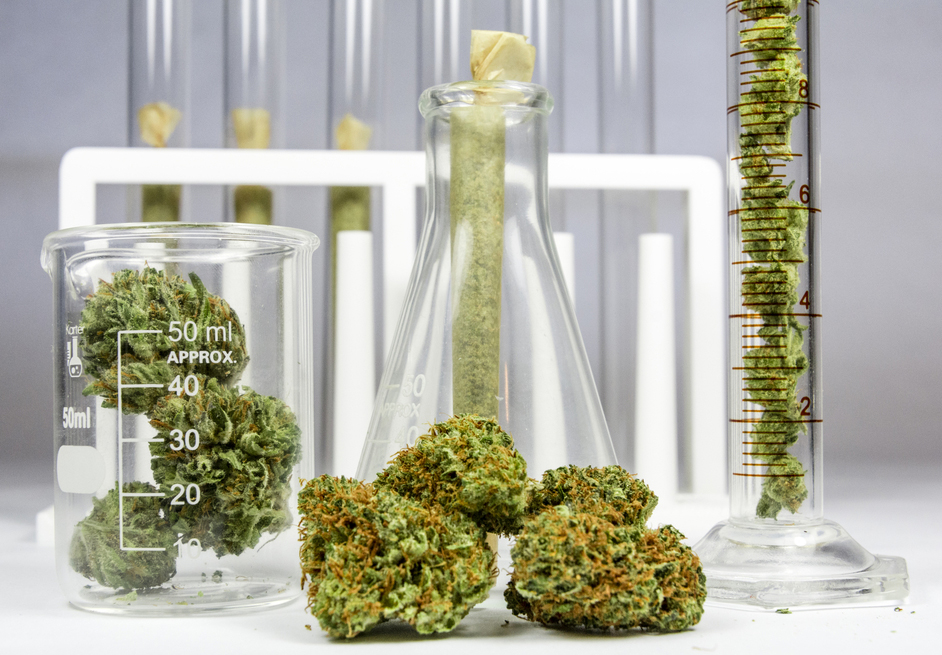Government scientists are preparing for India’s first human clinical trials to test cannabis-based compounds on select diseases in line with what they say is a global resurgence in the medical applications of marijuana derivatives.
The researchers have sought regulatory approval for a trial to evaluate these compounds on cancer patients at the Tata Memorial Centre, Mumbai.
They are also planning trials in other hospitals for a difficult-to-treat form of epilepsy and a blood disorder called sickle cell anaemia.
The Indian Institute of Integrative Medicine (IIIM) in Jammu, a unit of the Council of Scientific and Industrial Research that has cultivated cannabis for research on a one-acre plot, will formulate the derivative compounds for the trials.
The 1985 Narcotic Drugs and Psychoactive Substances Act bans commercial cultivation of cannabis. The harvesting of wild plants helps feed the nation’s demand for illegal weed as well as legal bhang, a drink used on festive occasions.
“We’re trying to generate medical evidence to justify the use of cannabis derivatives,” said Ram Vishwakarma, IIIM director.
“Once we have that, we’re hoping the government will change the regulations and apply the same model for strictly regulated cultivation of cannabis as it exists today for opium.”
Morphine, made from poppy, is among the most effective medical pain relievers.
India’s move towards clinical trials of cannabis derivatives comes amid growing evidence of the safety and efficacy of medicinal cannabis in the treatment of cancer, multiple sclerosis and a rare but severe form of epilepsy.
The US Food and Drug Administration had in June this year approved an oral solution to treat seizures associated with two severe forms of epilepsy in patients two years or older. It is the first FDA-approved medicine containing a purified substance from marijuana.
The proposed Tata Memorial Centre trial on cancer will study whether a short course of a cannabis derivative delivered just ahead of cancer surgery might influence the outcome or long-term survival.
“Cannabis brings about a state of bliss — we’re trying to ask whether this can occur at the level of cells. Can we push tumour cells into a state of relative inactivity just ahead of surgery?” said Rajendra Badwe, Tata Memorial Centre director.
“There is evidence from another molecule that this can influence outcomes positively.”
Badwe said the trial was likely to be offered to patients with lung or pancreatic cancers that have relatively low survival rates. This would allow the researchers to pick up the study results, if any, faster.
Badwe said that cannabis compounds could also be evaluated for the palliative relief they provide to terminally ill cancer patients, including relief from the nausea associated with chemotherapy. “These too would be short-term uses,” he said.
Vishwakarma said the IIIM hoped to partner the All India Institute of Medical Sciences, New Delhi, for the trial on epilepsy and the Sickle Cell Institute in Raipur, Chhattisgarh, for pain management in patients with sickle cell anaemia.
Some doctors are concerned that clinical trials of compounds already established as useful outside India would only delay their availability to Indian patients.
“There are some bad forms of epilepsy — the worst kind. The US FDA has already approved a cannabis derivative for these kinds of epilepsy. We need to find ways to fast-track such medicines to patients in India,” said Manjari Tripathi, professor of neurology at the AIIMS.
In parallel with the proposed clinical trials, the IIIM plans to partner the Bombay Hemp Company, a start-up, in initiating a dialogue with the Union government to ease the ban on the commercial cultivation of cannabis.
Company officials say India will need to standardise its cannabis strains to achieve predictable outputs of medicinal derivatives, bolster clinical research, and expand the area available for cannabis cultivation to meet future demand.
A cannabis-based medication has been available to patients in Canada since 2005, and America’s FDA has approved two cannabinoids for medical research.
Jahan Peston Jamas, co-founder of the Bombay Hemp Company, said: “India has to learn from such countries -– from standardised cultivation to product development to (introducing) access programmes for patients.”











